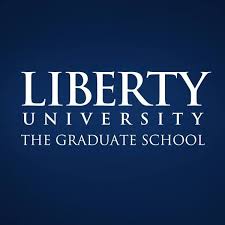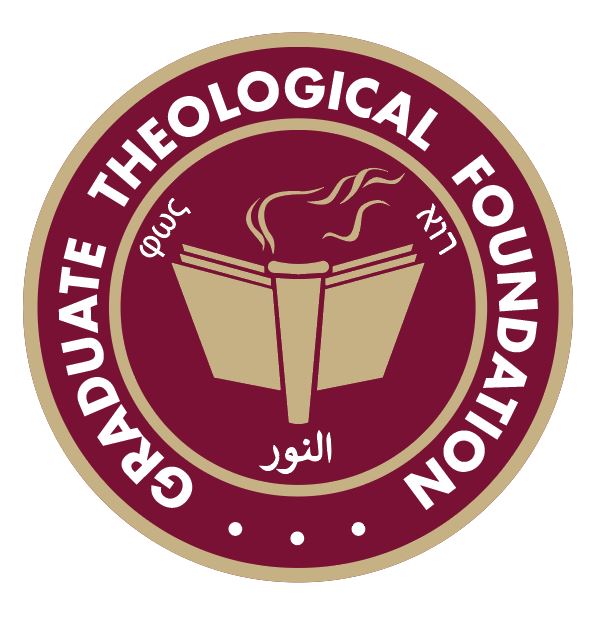Current Doctor of Pastoral Music (D.P.M) programs are usually taken on campus, but it a very adaptable format such that students are able to plan their schedule way ahead of their attendance. There are also alternative courses of similar themes with D.P.M. that are offered entirely online.
A Doctor of Pastoral Music degree program is designed for musicians interested in using their talents for religious purposes. This advanced degree combines theological education with practical and theoretical musical training to prepare students for leadership roles in churches and other religious organizations.
Music has always been an integral part of any religion. It is believed that the pastor guides the voices of the faithful to reach the heavens with the church musician leading them.
The Best Doctorates of Pastoral Music
Liberty University Online

Program Standouts:
Liberty University Online offers a myriad of well-received and ranked online doctoral programs. Among them is Liberty’s Doctor of Worship Studies degree program. Students in the doctoral program focus on creating “thoughtful, theologically worship that is rooted in biblical truth.” The degree adds biblical emphasis to musical knowledge while developing graduate-level musical ability.
Campus Location: Lynchburg, Virginia
Accreditation: Liberty University is accredited by the Southern Association of Colleges and Schools Commission on Colleges
Admissions Requirements:
- Application and fee
- Statement of Purpose
- Official College Transcripts
- Proof of English Proficiency
Course Sample:
- The Worship Leader
- Transitions in Worship
- Pastoral Roles of the Worship Leader
- Worship, Community, and Relationship
Degree Outcomes: Graduates of Liberty University’s Doctor of Worship Studies degree program will have learned about the foundations and history of corporate worship, explored the cultural nature of worship, and learned skills that allow them to address a myriad of congregational needs.
LEARN MORE ABOUT THE ONLINE DOCTOR OF WORSHIP STUDIES DEGREE PROGRAM AT LIBERTY UNIVERSITY
Graduate Theological Foundation

Program Standouts:
Graduate Theological Foundation offers a Doctor of Sacred Music degree program as a second-level professional degree for those already engaged in parish music ministries as minister of music, cantor or pastor of worship, etc.
Applicants should have already acquired a master’s degree in church, liturgical or sacred music or another master’s degree within which sacred music study was undertaken.
Campus Location: Oklahoma City, Oklahoma
Accreditation: The Graduate Theological Foundation does not hold accreditation from a Department of Education-approved accrediting agency.
Admissions Requirements:
- Bachelor’s Degree in some area of music
- Master’s Degree in some area of music
- Five years of accumulated experience
- Application procedure, including video/audio recordings
Doctoral Project Paths:
- Academic Track
- Performance Track
- Administrative/Ministerial Track
Degree Outcomes: Graduates of the Doctor of Sacred Music degree program at the Graduate Theological Foundation will be equipped to lead and develop music in worship as professional organists, music directors, cantors, or pastors of worship, among other career options.
LEARN MORE ABOUT THE DOCTOR OF SACRED MUSIC DEGREE PROGRAM AT THE GRADUATE THEOLOGICAL FOUNDATION
Southern Methodist University Perkins School of Theology

Program Standouts:
The hybrid Doctor of Pastoral Music degree program at Southern Methodist University Perkins School of Theology is designed for church musicians who are already experienced and have achieved a Master of Sacred Music degree or its equivalent.
Applicants should be interested in their own increased effectiveness and broadening their vision of pastoral elements of their ministry. Classes are held in a one-week format that allows students to maintain current professional positions while pursuing higher education.
Campus Location: Dallas, Texas
Accreditation: Southern Methodist University Perkins School of Theology is accredited by the Southern Association of Colleges and Schools Commission on Colleges
Admissions Requirements:
- Master of Sacred Music Degree or its equivalent
- Experience and demonstrated competence
- Four references
- Ability to reflect theologically
Course Sample:
- Person and Role of a Leader in Ministry
- Music and Arts in Missional Ministry
- Music in Worship and Renewal
Degree Outcomes: Graduates of the Doctorate in Pastoral Music degree program at Southern Methodist University Perkins will have been equipped for changes in the profession of church music in the areas of liturgical skills, cultural diversity, theological perspectives, congregational song, contextual musical analysis, and additional competencies.
LEARN MORE ABOUT THE DOCTOR OF PASTORAL MUSIC DEGREE PROGRAM AT SOUTHERN METHODIST UNIVERSITY PERKINS
Frequently Ask Questions
What does a Pastoral Musician do?
A pastoral musician is a Christian minister who handles music in religious affairs. First and foremost, the pastoral musician is a pastor and thus can perform evangelical celebrations. This is the distinctive function that sets pastoral musicians apart from lay church musicians.
Similar to church musicians, pastoral musicians play the piano, organ, or any musical instrument to facilitate religious rituals. They also lead the choir when singing songs of worship.
However, unlike ordinary church musicians, pastoral musicians are deeply rooted in theology. With their immense knowledge of the Bible and Christian doctrine, pastoral musicians compose songs inspired by the Word of God, bearing in mind the people of the Christian faith.
That said, however, being a pastoral musician is not just a profession; it is considered a vocation. Pastoral musicians are on a mission to help people practice their faith through singing that harmonizes the body and spirit.
How do I earn my D.P.M. degree?
If you want to pursue a D.P.M., you need to have a master’s degree in Sacred Music or Church Music. D.P.M. programs are specifically designed for existing church musicians with advanced degrees. More importantly, the course is intended for musically inclined pastors seeking to renew their vocation.
The D.P.M. program usually lasts around two to three years. The academic training consists of courses in leadership, theology, and music. Institutions conduct a series of seminars to enhance the liturgical skills of students. In the final year, students are required to write a thesis and a practicum project.
The doctorate thesis should exhibit the theological and liturgical skills of students who are expected to use music as a medium to contextually deepen their pastoral ministry. A D.P.M. thesis can be an original composition or a creative activity in a parish or congregation. It could also adopt the traditional written format wherein the graduate student writes a theological document or musicological analysis that will deepen the contemporary understanding of the Christian faith.
As a form of a dissertation, a D.P.M. thesis serves as the final hurdle for the student. This thesis has the objective of contributing to improving the current church music curriculum. Preferably, a student may initiate a program in the community and consider their thesis as a comprehensive evaluation of that program. That way, students are able to link their academic pursuits with grassroots Christian communities. Once a D.P.M. thesis is complete, a panel will judge the student’s work in an oral examination.
What sort of accreditation should I look for in a school?
For the Doctor of Pastoral Music (D.P.M.) program, two accreditation programs are fundamental:
- the National Association of Schools of Music (NASM)
- and Association of Theological Schools (ATS).
NASM oversees the quality of music programs while ATS checks whether the D.P.M. program is devoid of any heresy that may contradict Jesus Christ’s divinity.
There are other minor accreditation bodies for D.P.M schools, such as:
- the International Senate of Theological Accreditation (ISTA)
- and the Theological Accreditation International (TAI).
International accreditation committees like ISTA and TAI recognize the D.P.M.’s credibility in Christian communities around the globe.
What type of degree do I need to pursue research or educate others in Pastoral Music?
Anybody with a doctorate-level degree in church or sacred music may take the teaching path. They can either have a D.P.M. degree, a Doctor of Church Music Degree (DCM), a Doctor of Sacred Music (DSM), a Doctor of Musical Arts (DMA), and PhDs related to music.
Due to the high condensation of Theology subjects in the D.P.M. curriculum, scholars and ministers with advanced degrees in Christian theology may also take part in the D.P.M. faculty lineup. In lieu of research, fresh compositions, testimonies, and program improvement proposals are integral to pastoral music as a study.
How do I earn a transitional or bridge D.P.M. degree?
While some courses and activities (oral examinations) must be taken on-campus, there are flexible arrangements that some institutions offer to accommodate the hectic schedules of students who are, in fact, church musicians and ministers. There are some alternative courses for D.P.M. that are offered in an entirely online program.
What kind of career and salary can I expect with my D.P.M. degree?
When you have a D.P.M. degree, you may teach music in a religious or academic setting. You can train choir members and let them perform in community activities in church and community stages or through caroling. With your leadership, your group can qualify for prestigious competitions wherein you become their director and conductor.
The salary of a pastoral musician depends on institutional affiliation. However, if you have a D.P.M. degree, you can get out of the gig economy zone and enjoy career stability in the music direction.
As a doctorate-level church musician, you can earn more than a bachelor’s degree holder’s typical earnings in a year at $30,607. You can expect that amount to rise by 26% with a D.P.M. degree as you form extensive affiliations and maintain networks that translate into better opportunities. You can also receive payment courtesy of your congregation.
The figures above speak for a D.P.M graduate’s earning possibilities as a musician. Remember that if you have a D.P.M. degree, you are also a pastor. According to the Bureau of Labor Statistics, pastors make $60,180 annually. Given both music and theology in your training, a D.P.M. opens up opportunities for a fulfilling career.
Do I need a license to be a Pastoral Musician?
Because being a church musician and a pastor are both vocations as opposed to strictly being professions, there is no government certification that regulates their way of life. However, a certification from accreditation institutions is necessary before starting liturgical service. The faithful regard your diploma as a form of license that guarantees the credibility and experience of their pastoral musician.
What schools offer Doctor of Pastoral Music degrees?
The Southern Methodist University (SMU) Perkins in Dallas, Texas, offers the D.P.M. degree in a hybrid format. Most subjects are on-campus but are run on flexible set-ups such as weeklong seminars. Some classes are being conducted in the students’ parishes, especially for those pursuing a community-based project or program.
Although not directly offering a “D.P.M.” degree, there are similar alternative routes you can choose from. Liberty University Online in Lynchburg, Virginia, opens a completely online program for the “Doctor of Worship Studies” degree. The Graduate Theological Foundation in Mishawaka, Indiana, offers a “Doctor of Sacred Music” program wherein students have the option to take half of the coursework online.
The person who sings well prays twice, says the faithful. The pastoral musician has the responsibility to amplify believers’ spirituality through music. Do you want to sing your heart out in prayers and lead the singing of hymns of praise? Enroll in a D.P.M. program now.
What’s the job outlook for Pastor of Music positions?
The job outlook for Pastor of Music positions is positive. According to the Bureau of Labor Statistics, employment of religious workers is projected to grow 8% from 2021 to 2031. As churches and other religious organizations continue to expand their music ministries, there will be an increasing demand for pastors of music.
However, don’t forget that generally speaking, the demand for Pastor of Music jobs varies depending on the region and size of the church or organization.
Do I need to have certain denominational beliefs to excel in Pastoral Music?
While having certain denominational beliefs may contribute to one’s understanding and connection with pastoral music, it is not necessary to excel in the field.
Pastoral music is focused on providing spiritual and emotional support through music, regardless of specific religious beliefs. As long as one has a passion for music and a heart to serve and support others, one can excel in pastoral music.
